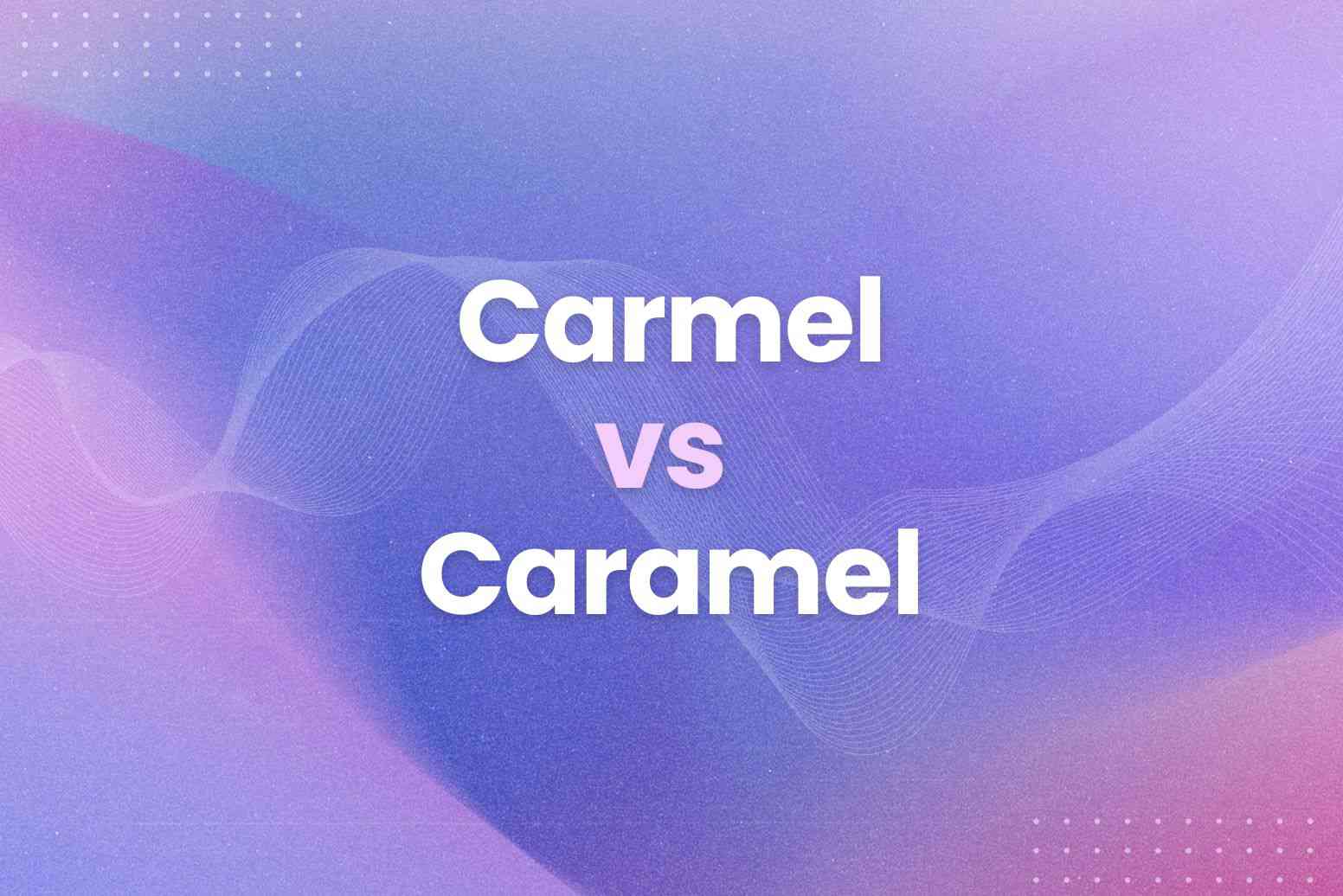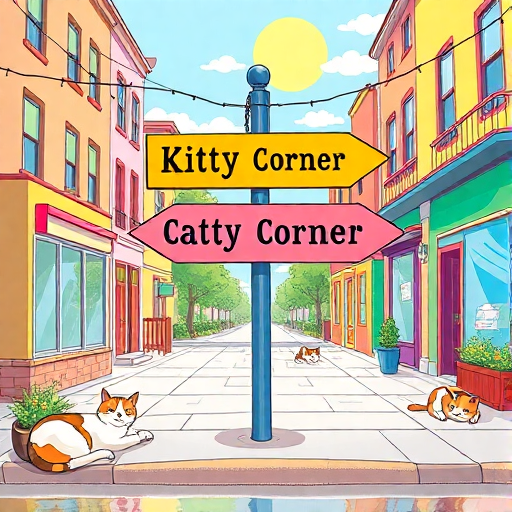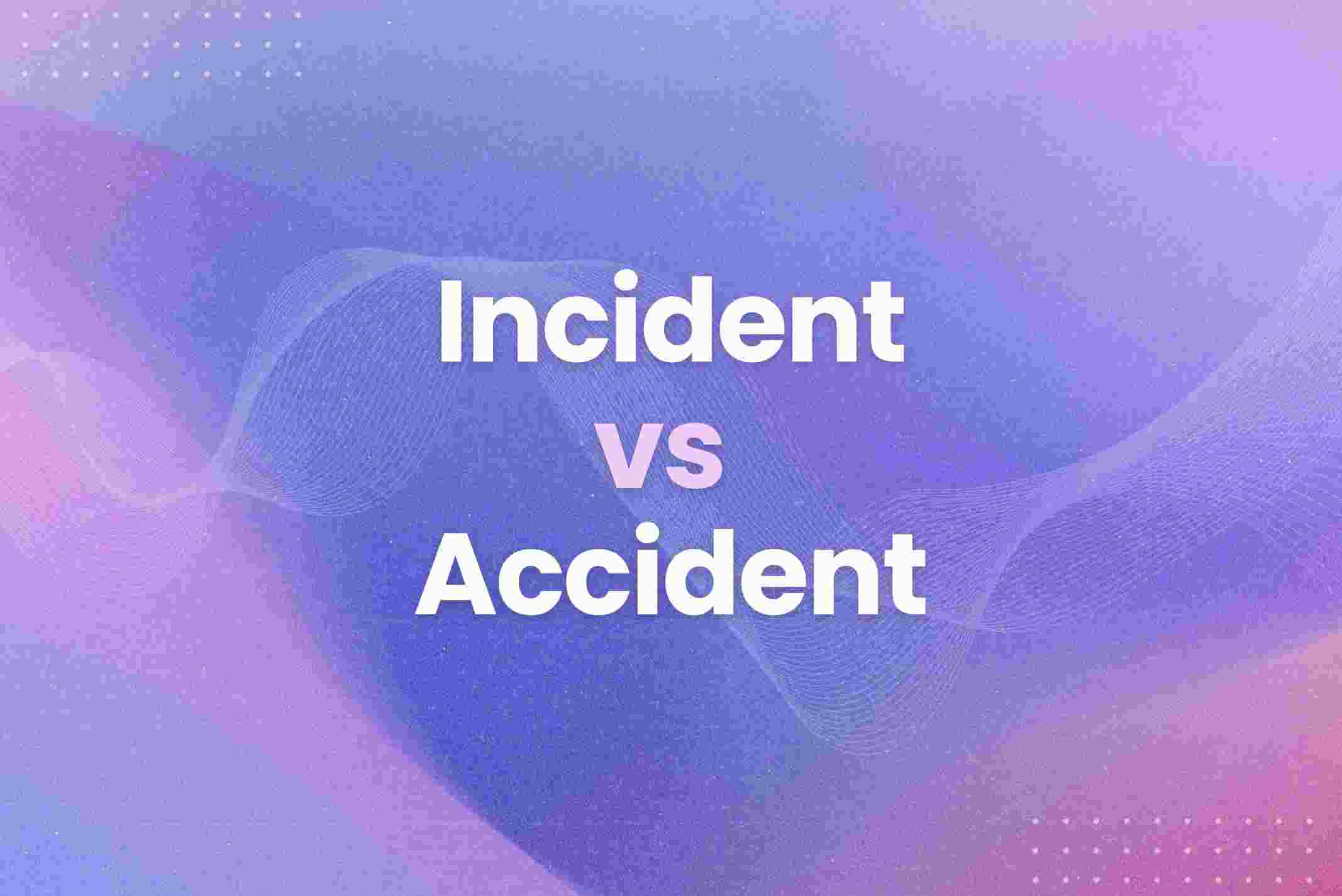Homophones and similar-sounding words in English lead to confusion because people often confuse them due to the similar sounds. The debate of Carmel vs caramel is one classic example. These two words are also spelled similarly and sound similar.
However, they have different meanings, usage, and even pronunciation. In this article, we’ll demonstrate how these two terms differ, learn their grammatical rules, understand when to use them, and answer some common mistakes people make.
Master the difference between Carmel and caramel, and write with confidence!
Understand the Meaning & Definition
In daily life, we often encounter commonly confused words. Understanding their distinct meanings helps ensure clear communication, whether you’re talking about a sweet treat or a place.
- Caramel refers to a sweet, sticky substance obtained from heating sugar. Candies, desserts, toppings, and other foods use caramel. You might even want a caramel drizzle on your favorite ice cream. This is a classic culinary term known by most food enthusiasts and used in many dessert recipes. It can be used in various desserts, sauces, and candies. Caramel has a rich, sweet flavor and can be made more complex with the addition of butter, cream, or vanilla.
- Carmel: This word commonly refers to geographic locations. For example, Carmel-by-the-Sea exists in California. It also has another association, Carmel, a popular name given, especially in Hispanic cultures. It can also refer to Mount Carmel, a mountain range in northern Israel, or to Carmel in biblical references.
In summary, “caramel” is a food item, while “carmel” is primarily a proper noun related to locations or specific references.
Pronunciation Differences
One big difference between the Carmel and caramel debates is that they are pronounced differently.
- Caramel: The pronunciation of caramel will vary in regional accents as it is pronounced as kar-uh-mel or kar-mel.
In the UK, in the US, and to a lesser degree in other parts of the US, kar-uh-mel is more common. At the same time, kar-mel. It is more common in American English, especially in certain regions.
- Carmel: Carmel is pronounced kahr-mel, emphasizing the second syllable. This explanation is used for places (when there is no regional variation).
Historical Background and Origins
The roots of caramel date back to the 18th century. The word has French roots, derived from “caramel” in French, which originated from the Latin “cannamellis” (sugar cane).
With the rise of confectionery production during the 19th century, caramel as a sweet treat became increasingly popular. In kitchens worldwide today, we use caramelization to create that lovely deep brown substance.
The name “Carmel” originates from the Hebrew word “Karmel,” meaning “garden” or “vineyard of God,” and religious and historical importance is ascribed to Mount Carmel in the Bible. The town of Carmel-by-the-Sea in California, established in the early 20th century, is a famous artistic enclave.
Usage and Common Errors
What has become rather common in the Carmel vs. caramel debate is the use of Carmel, which is where one should use caramel. The problem occurs commonly in both speech and writing.
A person might say, “I’d like a caramel latte.” While the espresso isn’t flavored, the sweet, sugary syrup added gives it a caramel taste. Technically, this syrup is called caramel, not Carmel.
Remember that caramel is all about sweets, and the word Carmel is a place. It should become clear if you’re talking about a sugary treat or a town, so if you’re unsure, ask yourself that question.
Some might mistakenly think that because they sound alike, they can be used interchangeably, which is incorrect. Misusing one for the other can lead to confusion or incorrect references, especially in written communication.
Grammatical Rules
From a grammatical view, caramel is a noun that describes a certain food item.
Carmel is a proper noun typically capitalized because the name alludes to a particular place.
In written communication, errors can occur when using “Carmel” instead of “caramel.” To avoid confusion between the food term and the location, always use “Carmel” with a capital ‘C’ when referring to a place.
Useful Tips Which Will Help You To Avoid the Mistakes
To prevent mistakes when using caramel vs caramel, consider the following tips:
- Remember the context: If it’s sweet, you are talking about caramel. When talking about a place, use Carmel. Always consider the context—if it’s about food, it’s likely “caramel”; if it’s a location or proper noun, it’s “carmel.”
- Check your spelling: If you doubt the correct word, a quick spell check or search online can help you find out. If unsure, looking up the correct form can help, especially when writing formally.
- Practice pronunciation: One of them is being mindful of how you pronounce each word. If you’re unsure about the meaning, consider how the word is pronounced in context—this can often clarify whether it relates to food or place. Stress the sound differences, especially with caramel.
The Arvin browser extension is great if you need assistance with grammar. Arvin can save you from common mistakes when writing an email or a report.
You can immediately start chatting casually with Arvin directly in real-time to make suggestions and instantly correct your grammar on any page.
Start a conversation with Arvin today and see where it leads!

Conclusion
Knowing the difference between Carmel vs caramel is a matter of language context and learning how to say and spell it. These words may have identical sounds but have completely different meanings.
With a little practice, and perhaps with the help of Arvin, you can easily avoid confusion and use these terms correctly in both writing and speech.
FAQs
Carmel refers to specific places, such as the city of Carmel-by-the Sea, while caramel is a sugary confection.
It’s not wrong, but “kar-uh-mel” is more widely accepted in formal contexts.
Remember that, unlike caramel, Carmel means locations. Context is key.
The problem occurs as the pronunciation similarly occurs in numerous regional dialects.
Absolutely! You can use Arvin, the AI browser extension, to correct grammar mistakes and ensure your word usage is accurate in your writing.
Visit Arvin to learn about the pricing/subscription details.








